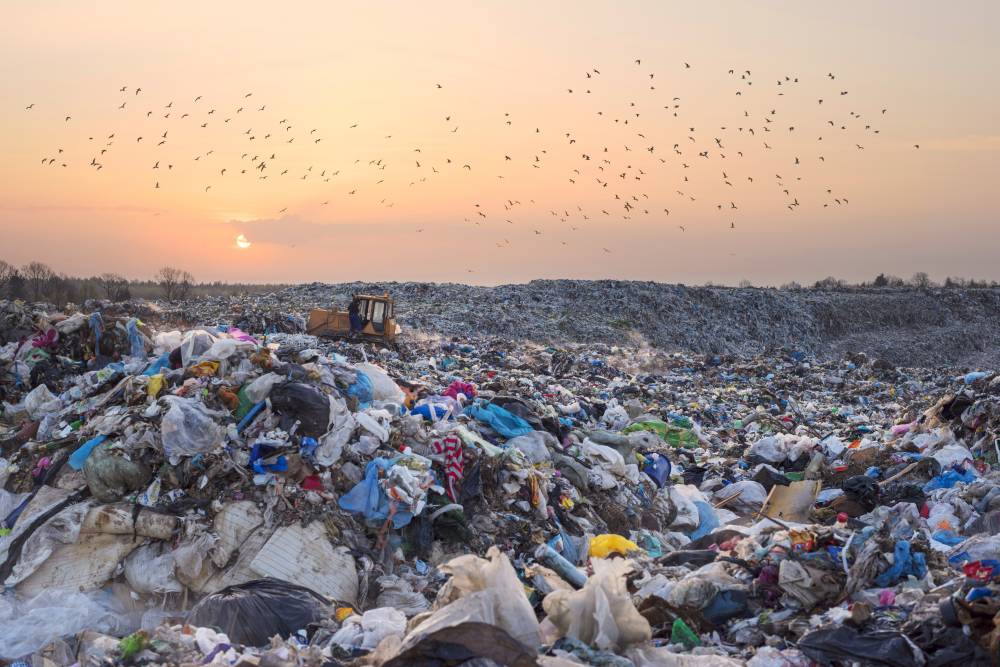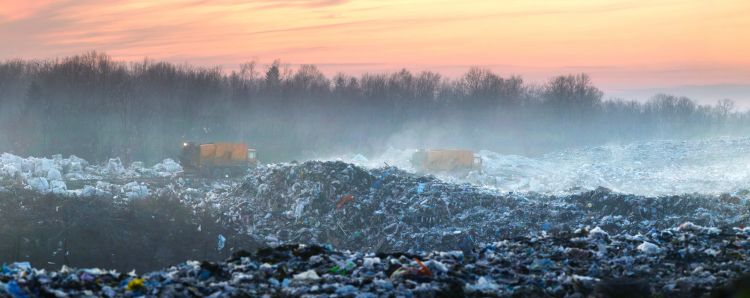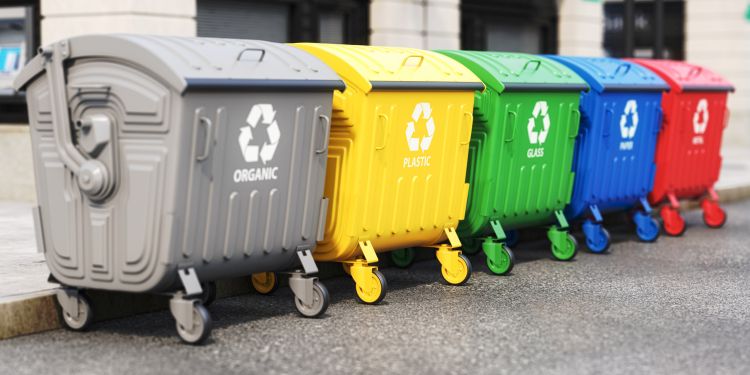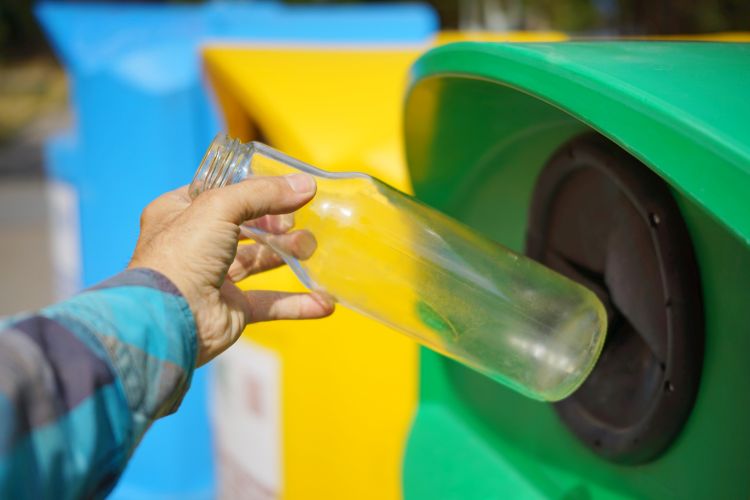Reducing Global Waste Generation for a Sustainable Future
Reducing Global Waste Generation for a Sustainable Future

Understanding Our Waste Footprint
According to the World Bank, “The world generates 2.01 billion tonnes of municipal solid waste annually, with at least 33 percent of that—extremely conservatively—not managed in an environmentally safe manner.” The ever-increasing amounts of waste we produce make the planet and ourselves sick. It is not sustainable and needs to be reduced. With efforts, we can effectively decrease our waste streams.
Reductions begin with understanding where the mountains of garbage come from. Most of those piles are composed of waste we cart out to the weekly pickup point. To reduce those amounts, we need to consider your daily routines. How many disposable items do you use? How much food do you throw away? What about packaging from online shopping or takeout meals?
We can also see that the waste footprint extends beyond what we see in our trash cans. It includes the resources used to produce the items we consume and discard, the energy expended in transporting waste, and the long-term environmental impacts of landfills and incinerators.
By understanding the entire lifecycle of our waste, we can make more informed decisions about our consumption habits.
Government Actions to Minimize Waste
While individual actions are crucial to waste reduction and management, with great leadership, governments play a vital role in waste reduction and management. This only happens when we elect leaders who recognize and address key areas where government action can make a significant impact, such as:
- Extended Producer Responsibility (EPR): Implement EPR policies that make manufacturers responsible for the entire lifecycle of their products, including disposal. This incentivizes companies to design products with less waste and more recyclable components.
- Waste Reduction Targets: Setting ambitious targets for waste reduction and recycling can drive innovation and investment in waste management infrastructure that eventually becomes binding.
- Green Procurement: Governments can lead by example, prioritizing products with minimal packaging and longer lifespans in their purchasing decisions.
- Education and Awareness Campaigns: Initiatives can inform citizens about proper waste disposal and the importance of waste reduction.
- Investment in Recycling Infrastructure: Improve and expand recycling facilities, making it easier for citizens to recycle correctly.
- Plastic Bag Bans or Fees: Many governments have successfully reduced plastic waste by implementing bans or fees on single-use plastic bags.
Reducing Toxicity in Waste Products

Landfills release toxic chemicals. Stock.com/Panaramka
Governments must play a crucial role in reducing the toxicity of waste products:
- Chemical Regulations: Implementing and enforcing strict regulations on the use of toxic chemicals in consumer products can significantly reduce the harmful impact of waste.
- E-Waste Management: Establishing comprehensive e-waste recycling programs and regulating the disposal of electronic devices can prevent toxic materials from entering landfills.
- Hazardous Waste Collection: Organizing regular collection events for hazardous household waste ensures proper disposal of items like batteries, paint, and electronics.
- Encouraging Green Chemistry: Provide incentives for companies that develop and use less toxic alternatives in their products.
- Landfill Regulations: Strict regulations on landfill management can prevent toxic leachate from contaminating soil and groundwater.
Waste will always be produced. We can reduce it and develop eco-friendly ways to deal with the remainder that minimize impacts on the planet and our health.
Strategies for Individual Waste Reduction
Individual efforts by you and me to control waste remain crucial to winning the battle. Here are some practical strategies (there are many more) we can implement:
- Embrace reusable items: Invest in a reusable water bottle, coffee cup, and shopping bags. This simple switch can eliminate hundreds of single-use items from your yearly waste.
- Shop smarter: Buy in bulk when possible to reduce packaging waste. Choose products with minimal or recyclable packaging. Consider whether you really need an item before purchasing it.
- Say no to single-use plastics: Decline plastic straws, utensils, and excess packaging when possible. Opt for products made from sustainable materials instead.
- Reduce food waste: Plan your meals, use leftovers creatively, and compost what you can’t eat. Food waste in landfills contributes significantly to greenhouse gas emissions, such as methane.
- Repair and repurpose: Before throwing something away, see if it can be fixed or used for a different purpose. This not only reduces waste but can also save you money.
- Go digital: Opt for digital subscriptions instead of print magazines and newspapers. Use digital notes instead of paper ones when possible.
Proper Waste Disposal

iStock.com/Bet_Noire
Despite our best efforts, we’ll still produce some waste. The key is ensuring it’s disposed of properly:
- Learn local recycling rules: Recycling guidelines can vary by location. Take the time to understand what can and can’t be recycled in your area, and pressure leaders to implement these programs where they are not already happening.
- Clean your recyclables: Rinse out containers before putting them in the recycling bin. Contaminated items can lead to entire batches being rejected.
- Compost organic waste: If you have a garden, start a compost pile for food scraps and yard waste. Many communities also offer composting services. Ask for these programs if not available.
- Dispose of hazardous waste correctly: Items like batteries, electronics, and certain chemicals shouldn’t go in regular trash. Look for special collection events or facilities in your area.
- Consider donating: Items you no longer need might be useful to someone else. Donate clothes, furniture, and other usable items to charity or give them away in your community.
Making It a Habit

iStock.com/Mladn61
Changing habits takes time and effort, but it gets easier with practice. Start by focusing on one or two areas where you can reduce waste. As these changes become second nature, gradually incorporate more waste-reducing practices into your routine. The goal isn’t perfection. Even small changes, when adopted by millions, can have a huge impact. Share your efforts with friends and family—you might inspire them to make changes, too.
The Bigger Picture
It’s also important to support broader initiatives for waste reduction. Stay informed about local waste management policies and support businesses that prioritize sustainability. Consider reaching out to your local representatives to advocate for better community waste reduction and recycling programs. By taking control of our waste generation and disposal, we’re not just keeping items out of landfills—we’re contributing to a larger movement towards sustainability. Every piece of trash we avoid creating is one less burden on our planet’s resources.
As you embark on your waste reduction journey, remember that it’s a process. Celebrate your successes, learn from your challenges, and keep pushing forward. Your efforts, combined with those of others worldwide, are building momentum towards a cleaner, healthier planet for all of us.
Please make conscious choices, reduce waste, and dispose responsibly. Our actions, multiplied across communities and nations, will create meaningful changes. Start today—your planet will thank you, your children will thank you, as will your body.
Related Posts
The Environmental Harm of Junk Mail
MORE ECO SOLUTIONS
Important Ways to Help Our Earth








